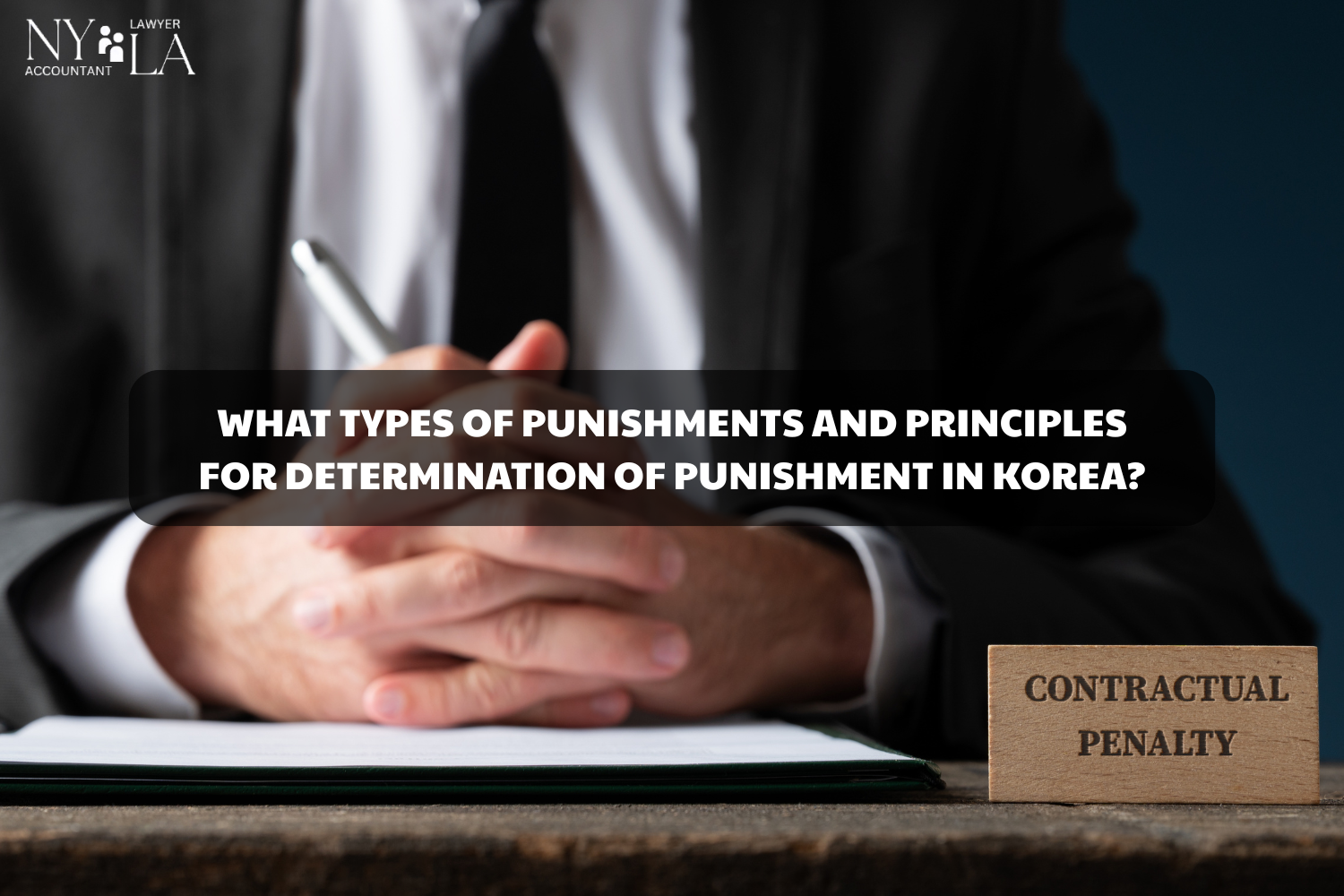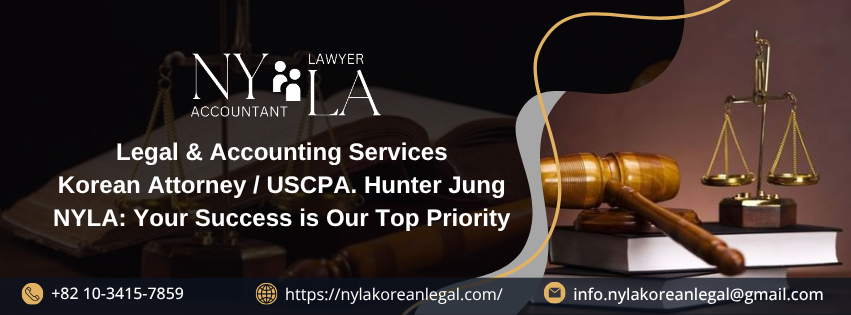In the realm of criminal law, punishment serves as both a deterrent and a corrective measure for offenders. In Korea, the Criminal Act outlines the legal basis for the application of various punishments, the hierarchy of their severity, and the key principles used to determine the appropriate punishment in each case.
Summary
1. What Are the Main Types of Punishment in Korea?
The Korean Criminal Act recognizes a diverse range of punishments, designed to fit the gravity and nature of each offense. The primary types of punishment include:
-
Death penalty – The most severe form of punishment, used only in extreme cases.
-
Imprisonment with labor – A common form of punishment involving compulsory labor.
-
Imprisonment without labor – A form of punishment that excludes labor, often considered more severe if for an indefinite term.
-
Deprivation of qualifications – A punishment that restricts the offender’s civil rights or professional licenses.
-
Suspension of qualifications – A temporary form of the above punishment.
-
Fine – A monetary punishment, typically applied to less serious offenses.
-
Detention – A short-term punishment involving custody.
-
Minor fine – A lighter version of the fine punishment.
-
Confiscation – A punishment involving the seizure of items related to the crime.
Each of these punishments is designed to match the seriousness of the crime committed.

2. How Is the Severity of Punishment Determined?
The severity of punishment is critical in ensuring fairness and justice in sentencing. In Korea, the order of punishment severity is legally established, starting with the death penalty and ending with minor fines.
Key Rules for Determining Severity:
-
Imprisonment without labor for an indefinite term is considered more severe than imprisonment with labor for a set period.
-
When comparing punishments of the same type, the one with the longer maximum or minimum term (or higher amount for fines) is seen as more severe.
-
If maximum terms or amounts are equal, the minimum duration or amount becomes the determining factor.
-
In situations not covered by these rules, the severity of punishment is judged based on the nature and circumstances of the offense.
These guidelines ensure that punishments are proportionate and consistent across cases.
3. Principles for Determining Appropriate Punishment
In the Korean legal system, the process of determining appropriate punishment goes beyond merely applying a specific penalty. Courts follow a holistic approach, guided by several foundational principles designed to ensure that the punishment fits not only the crime but also the individual circumstances of the offender. This approach reflects the country’s commitment to fairness, justice, and the potential for rehabilitation.
Key principles considered in the determination of punishment include:
-
The age, character, and intelligence of the offender: Younger offenders or those with cognitive limitations may be treated with more leniency. The court examines an individual’s psychological state, history of behavior, and potential for reformation.
-
The conduct and criminal history of the offender: Repeat offenses may warrant harsher punishments, while a first-time offense could lead to more lenient sentencing. Courts assess whether the offender demonstrates remorse or a pattern of disregard for the law.
-
The offender’s relationship with the victim: A crime committed against a close relative or under emotional duress might influence the type and severity of the punishment. In some cases, the victim’s forgiveness or willingness to reconcile may also play a role in sentencing decisions.
-
The motive, method, and outcome of the crime: Violent or premeditated crimes generally result in more severe punishments. On the other hand, crimes committed due to desperation or mitigating circumstances may be viewed more sympathetically.
-
Post-crime behavior: Whether the offender turned themselves in, cooperated with the investigation, or made efforts to compensate the victim is another critical factor. Positive actions taken after the crime can significantly impact the final punishment.
Through the application of these principles, the Korean legal system aims to use punishment not solely as retribution but as a mechanism to encourage rehabilitation and reduce the likelihood of reoffending. Each case is assessed individually, and this nuanced approach allows for more just outcomes.
Conclusion: Why Understanding Punishment in Korea Matters
Understanding how punishment is determined in Korea provides essential insight for anyone involved in the legal system, whether you’re a foreign resident, a business owner, or a legal practitioner. From the variety of punishments available under the law to the methodical principles that guide sentencing, every aspect contributes to a comprehensive and fair legal framework.
By gaining a deeper understanding of Korean punishment laws, individuals can better protect their rights, respond appropriately when facing legal issues, and seek the right legal support.
If you require professional legal guidance regarding punishment laws, criminal defense, or sentencing procedures in Korea, it is highly recommended to consult a licensed attorney experienced in Korean criminal law.
4. About NYLA – Korean Legal Office

■ NYLA – Your Trusted Legal Partner in Korea
At NYLA, we understand that the success of foreign businesses in Korea requires not only a solid business strategy but also reliable legal support. With a team of experienced Korean attorneys and legal professionals, NYLA provides tailored legal services for companies, investors, and individuals operating or planning to establish a presence in Korea.
We support our clients throughout the entire business journey with comprehensive services, including:
- Legal consultation on company establishment, taxation, and immigration;
- Advice on commercial real estate, franchising, and product distribution;
- Support in human resources, marketing, and business strategy.
In addition to legal advisory, NYLA also represents clients in civil litigation cases related to business, labor, marriage, family, and inheritance to ensure their rights and interests are fully protected.
■ Contact NYLA

If you’re a foreign business or individual looking for a reliable legal partner in Korea, NYLA is here to help. We are committed to delivering effective, practical, and personalized legal solutions for every client.
With a proven track record of assisting hundreds of international clients, our team is equipped to help you navigate complex legal challenges—whether it’s commercial disputes, contract issues, or foreign investment guidance.
Don’t let legal matters hold you back. Let NYLA be your trusted guide in the Korean market.
■ Get in touch with NYLA for expert legal support
| Website: https://nylakoreanlegal.com/
FB: https://www.facebook.com/nyla.koreanlegal Tiktok: https://www.tiktok.com/@nylakoreanlegal Youtube: https://www.youtube.com/@NYLA-xd8qx Email: info.NYLAkoreanlegal@gmail.com SĐT: +82 10-3415-7859 |
 |






















































